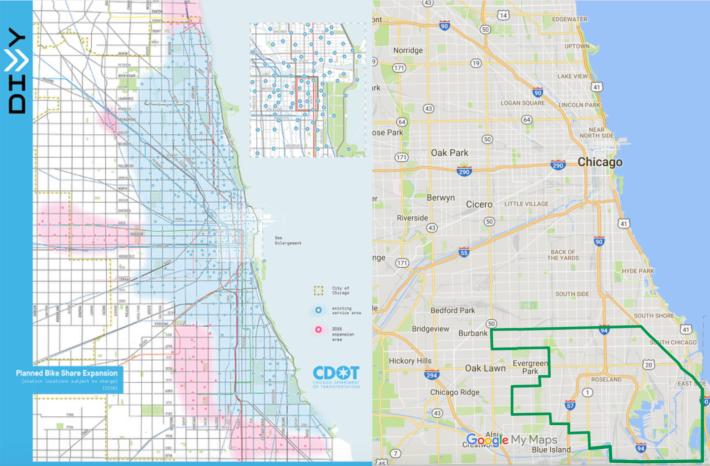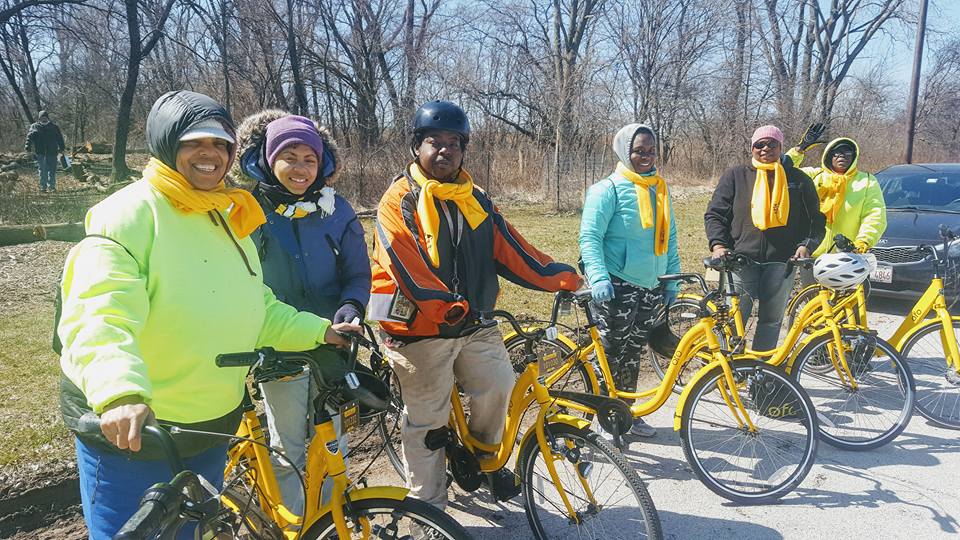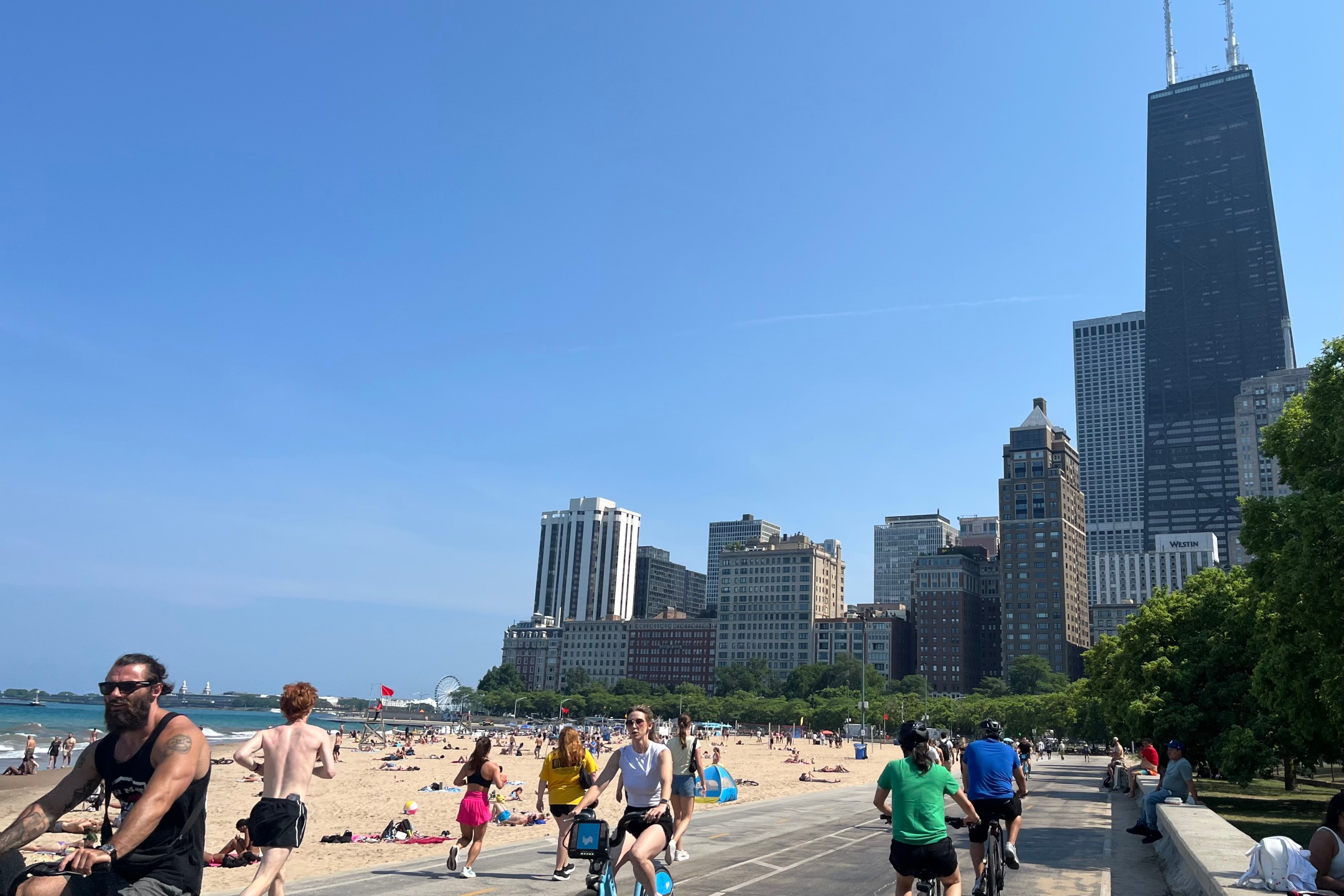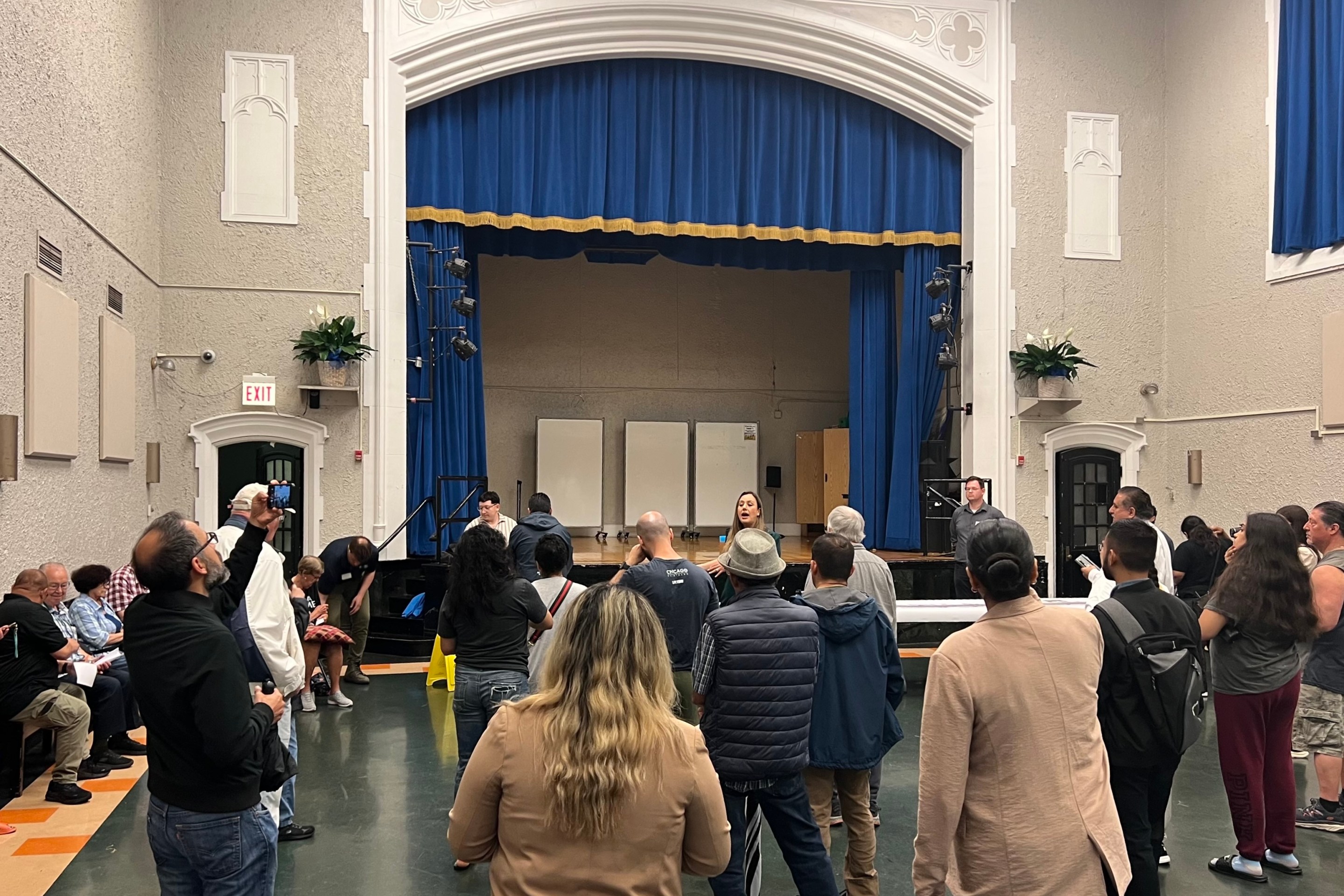Chicago’s long-awaited test of dockless bike-share technology starts tomorrow morning at 7 a.m., when LimeBike will release up to 50 bikes from the north parking lot of County Fair Foods, 10800 South Western in Beverly. (If you’re interested in getting up early and showing up for the launch, here’s how you get there via the Red Line.)
LimeBike competitor Ofo also hopes to release up to 50 bikes on Tuesday morning, assuming the city of Chicago approves their permit by then. Zagster has also submitted an application and hopes to launch soon with 50 bikes. Jump Mobility, which, like Ofo, has provided cycles for low-tech bike libraries launching this spring on the Far South Side and in North Lawndale, is also likely to set up shop in Chicago, although they recently declined to comment on the subject. No other DoBi companies I’ve reached out to about the pilot, including MoBike, Spin, and CycleHop, have responded.
You can read up on the details of the pilot here and here. But the most controversial aspects of the permitting rules are the city’s decision to limit the test to neighborhoods south of 79th Street (mostly outside of the current Divvy zone) and require “lock-to” bikes after July 1.
Unlike most dockless cycles, which only have a wheel lock for “free-locking” the bike, lock-to cycles feature a built-in U-lock or cable for securing it to a rack, pole, or parking meter. Vendors such as LimeBike and Ofo, which typically use wheel-lock-only bikes, will be allowed to launch with 50 of these, while operators with lock-to cycles, such as Jump and Zagster, may deploy up to 250. After the July 1, all bikes must be lock-to, and every company can have 250 cycles on the street.
Some commentators, such as shared-use mobility consultant Creighton Randall, have argued that by limiting DoBi to a section of Chicago that currently has relatively little cycling and bike infrastructure, the city has intentionally doomed the pilot to fail.
Wow. Appears to be a policy that's intent on demonstrating failure - even these days, this is suprising. Will be really interesting to see if/how operators choose to engage. 3 days of public notice is a classy move too! @theycallmeOboi @greenfieldjohn @SharedUseCntr https://t.co/zEre91bVzz
— Creighton Randall (@creighton_r) April 27, 2018
On the other hand, Mashable’s Sasha Lekach praised the lock-to rule as a wise move. “With this pilot, which starts in the South Side area, Chicago is preemptively sparing its sidewalks from bicycles left in the way,” she wrote. “Cities like Dallas, San Diego, and San Francisco have been dealing with unregulated bike-shares that allow riders to leave self-locking bikes strewn around those cities.”
I asked Active Transportation Alliance director Ron Burke for his opinion of the pilot rules. “The key question is: can DoBi sustainably and equitably contribute to more and better bike-share across Chicago and other cities, collectively serving the public interest and operating as two-wheeled public transit, without causing [Divvy] services to shrink, or only to be offered in more profitable areas?” he wrote. “Achieving these outcomes will rely on policies adopted by the city, as the DoBi companies will largely be driven by profit goals.”

Burke said Active Trans supports the geographic boundaries of the the test. “We think it makes sense to focus pilot projects on areas with no Divvy or low-density Divvy coverage, to see how well DoBi can help fill gaps.”
Burke did voice some concern about whether the 250-bike limit is too low. Washington D.C., the only other major U.S. city with a large, successful docked bike-share system as well as dockless bikes, has allowed 400 bikes per DoBi company. “Will there be too few bikes?” he wrote. “That partly depends on how many companies participate. If five vendors do 250 bikes, that’s 1,250 bikes across roughly one-fifth of Chicago. That would translate into 6250 bikes across all of Chicago. Divvy has 6,000 bikes across nearly half of Chicago and in the more dense parts of Chicago for the most part.” The Divvy service area covers more than 100 square miles of Chicago’s 227 square miles, serving 63.8 percent of the population, according to the city.
“While docked and DoBi are different, this seems to be a reasonable comparison to assess coverage,” Burke said. “In this scenario with my back of the envelope math, the pilot would have about half the coverage density of Divvy. Is that too little, given that the pilot neighborhoods are less dense? Might be. If ten vendors bring 250 bikes, probably enough. If only two, that would be too few bikes.”
Burke added that Active Trans isn’t opposed to the lock-to rule as a short-term strategy to prevent sidewalk clutter. “At the same time, we’re hopeful that over time this wouldn’t be necessary if the vendors design their programs with the right incentives to encourage responsible parking, and cities are vigilant about removing and/or fining [the companies for] wayward bikes (which gets to staff capacity and the need to use DoBi fees to help pay for that). You can see the DoBi parking issue evolving and improving in other cities.”
Do you plan to try out dockless bike-share tomorrow and, if so, how do you plan to use the bikes? Let us know in the comments section.




